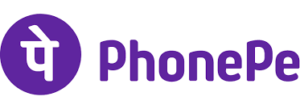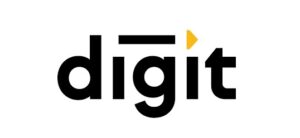
Top 10 Most Well-Funded Indian Fintech Companies as of September 2023
by Fintech News Singapore October 9, 2023Fintech funding in India continued its downward trend this year, carrying on a trend that started in 2022 as rising interest rates, fears of a looming recession and a bear market for technology stocks prompted investors to put the brakes on their investment pace and shift strategies.
Fintech companies in India secured a US$1.8 billion in funding in the first eight months of 2023, new data released by the Digital Fifth, a fintech consulting firm based in India, show. Although the figure puts the country on track to surpass pre-COVID-19 levels, the sum contrasts starkly with the US$5.1 billion secured in 2022 and the all-time high of US$6.9 billion raised by the industry in 2021.

Indian fintech funding 2017-2023, Source: Indian Fintech Funding Report August 2023, The Digital Fifth, Aug 2023
Despite the downturn, India’s fintech sector continued to rise this year with players introducing new products and expanding overseas.
To get a sense of India’s up-and-coming fintech companies, we look today at the country’s most promising fintech startups, delving in particular into the top funded fintech companies in India.
For this list, we used data from CB Insights, Dealroom, StartupTalky, news outlets, as well as companies’ press releases, and focused solely on equity funding.
PhonePe – US$2 billion

Founded in 2015, PhonePe is a digital payments and financial services company. The company provides an app that allows users to send and receive money, top-up their mobile phone, make utility payments, pay at shops, invest in funds, buy insurance, and more.
The PhonePe mobile app is one of the India’s largest payments apps, dominating transaction on the United Payments Interface (UPI), India’s interbank instant payment system, by commanding nearly 50% of all transactions by value. The company, which claims 450 million registered users, said earlier this year that it had hit an annualized total payment value run-rate of US$1 trillion.
PhonePe has raised about US$2 billion in funding, according to data from Dealroom, CB Insights and StartupTalky, and is worth a reported US$12 billion. The company closed its latest round in May 2023, securing US$100 million from General Atlantic.
The fundraise brought its total funding raised this year to US$850 million, and comes at a time when PhonePe is aggressively expanding its product offerings with financial services including wealth management, lending, stockbroking, shopping and account aggregation. The company is aiming for an initial public offering (IPO) as early as 2024, CEO Sameer Nigam told CNBC TV 18 in April 2023.
Pine Labs – US$1.1 billion

Founded in 1998, Pine Labs is a leading merchant commerce omnichannel platform operating across India and Southeast Asia. The company relies on a tech-first approach to digital payments and focuses on simplification at the front end to help businesses embrace fintech products at scale.
Pine Labs’ key products include Plural, an online payments cloud-based software designed to deliver secure and frictionless online payment experiences to end users; Qwikcilver, a prepaid, stored value and gift card issuing service for companies looking to bolster their sales, acquire and retain customers and drive operational efficiencies; and Fave, a fintech platform for smart payments and savings.
Pine Labs told CNBC TV 18 in March that it had seen a threefold rise in the number of merchants onboarded to its platform on a monthly basis and a similar rise in transaction volume. The company closed its fiscal year (FY) 2023 with over US$200 million in annual revenues.
Pine Labs, which filed for a confidential IPO filing in the US in January 2022, said earlier this year that it was deferring its public listing plans, focusing instead on expanding globally. Pine Labs is currently present in five Southeast Asian countries and recently launched its services in United Arab Emirates (UAE).
Pine Labs has raised more than US$1.1 billion in funding so far, according to data from Dealroom, CB Insights and StartupTalky. Its latest round was a US$50 million investment secured in March 2022 at a valuation of over US$5 billion.
DMI Finance – US$900 million

Founded in 2008, DMI Finance is a pan-India credit platform with core businesses in corporate lending, housing finance, digital consumer and micro, small and medium-sized enterprise (MSME) finance and asset management.
The company sources and services customers through multiple digital channels, including embedded finance, a model in which its financial products are integrated into the platforms of leading businesses including Samsung, Google Pay and Airtel to provide their own respective customers with digital lending offerings.
Through this partnership model, DMI Finance’s partners gain access to fully digitalized personal loans and point-of-sale (POS) loans where the entire application and origination process is completed online within partners’ ecosystems.
By being embedded into the customer journey, users are offered a superior experience and greater convenience.
DMI Finance claims it had provided credit to 11 million customers as of December 2022 and says it has an accessible customer base of 25 million, adding that this customer base is expected to grow to more than 40 million in FY2024, according to Entrackr.
The company has secured US$900 million, its latest round being a US$400 million equity investment round secured in April 2023.
OFB Tech – US$855 million

Founded in 2015, OFB Tech (doing business as OfBusiness) is a business-to-business (B2B) commerce and fintech startup that provides smart procurement and smart financing solutions to SMEs.
Its B2B marketplace specializes in procuring raw materials, with a specific emphasis on agriculture and building materials, for SMEs throughout India. The platform also provides SMEs with access to cash flow-based financing for buying raw materials through its non-bank financial institution, Oxyzo Financial Services, and offers a host of tech services for SMEs like BidAssist for new growth opportunities.
OfBusiness claims it recorded impressive financial performance in FY22 with a notable 3.6 times year-over-year (YoY) increase in net profit and a fourfold increase in revenue.
The startup has raised more than US$855 million in funding so far, according to data from CB Insights, Dealroom and StartupTalky. Its latest round was a US$325 million investment secured in December 2021 that gave it a US$5 billion valuation.
The company is reportedly in talks to raise a large funding round ahead of its potential IPO, people aware of the development told VCCircle in June 2023. The planned round would provide an exit to a few of the company’s early investors.
Cred – US$800 million

Founded in 2018, Cred is the developer of a credit card payment application that rewards users who pay their credit card bills on time with offers and discounts on shopping, health services, and other sites.
The platform allows credit card users to manage multiple cards along with an analysis of their credit score, and provides them with key insights into their spending habits and card usage through a set of card spend tracking and management features. Members with a high credit score are eligible for exclusive rewards upon payment of their credit card bills through the app.
For businesses, Cred offers commerce offerings such as visibility and network services for independent brands to connect with the users on the platform. It also provides lending services through a partnership of IDFC First Bank and various non-banking financial corporations.
Cred recently launched a new car service called Garage. The platform provides members with access to a host of services, including 24/7 concierge service, reminders, document management and insights on spending.
Cred has raised more than US$800 million in funding, though some sources, including Startup Talky and Dealroom, claim that the number stands above the US$1 billion mark. Its latest round was a US$80 million Series F secured in June 2022, which the company said it would use to expand its business and for future growth. Cred is valued at US$6.4 billion, according to CB Insights.
Razorpay – US$741 million

Established in 2014, Razorpay is a full-stack financial services company which provides Indian businesses and organizations with comprehensive and innovative payment and banking solutions.
The company, which claims more than 10 million business customers including the likes of Facebook, Zomato and Cred, allows its clients to accept, process and disburse payments through credit cards, debit cards, net banking, UPI, as well as popular wallets including JioMoney, Mobikwik, Airtel Money, FreeCharge, Ola Money and PayZapp.
The company also provides RazorpayX, a business banking platform that allows customers to open current accounts, process payroll in three clicks, pay their taxes, tap automated vendor payments, get collateral-free corporate card completely free of charge, and more. The RazorpayX platform claims 45,000 business customers, and recently added foreign exchange (FX) services.
Recently, Razorpay launched the D2C GRO Suite, a product suite designed to tackle challenges throughout the e-commerce lifecycle, including customer engagement, shopping experience, fraud and checkout processes.
Razorpay has raised about US$741 million in funding, according to Fortune India, NewsVoir, as well as CB Insights and Dealroom data (though StartupTalky puts that number closer to US$815 million). The company’s latest round was a US$375 million Series F secured in December 2021 to further scale its RazorpayX neobanking platform. Razorpay is valued at US$7.5 billion.
BharatPe – US$583 million

Founded in 2018, BharatPe caters to small merchants and business owners, providing them with a range of fintech products including interoperable QR code for UPI payments; BharatSwipe, a POS machine, for card acceptance, small business financing; as well as buy now, pay later (BNPL) solutions.
BharatPe is currently serving more than 10 million merchants across 400+ cities, and is one of the country’s leaders in UPI offline transactions, processing 300 million UPI transactions per month and over US$24 billion in annualized transaction processed value. The company has already facilitated the disbursement of loans totaling close to IND 80 billion (US$961 million) and its POS business processes payments of over US$3.5 billion annually on its machines.
According to an Outlook India report, BharatPe has around 200,000 POS devices deployed across the country, and intends to double its network of terminals over the next one year with the launch of a new Android-based POS terminal.
BharatPe has raised over US$583 million in equity funding so far. Its latest round was a US$370 million funding round closed in August 2021 that gave it a valuation of US$2.85 billion.
BharatPe is now reportedly in talks with its existing investors to raise US$100 million in fresh equity funding round, two people aware of the development told the Economic Times earlier this month. The company is also looking to onboard a fresh investor in the round.
Navi Technologies – US$582 million

Founded in 2018, Navi Technologies is a financial services company that operates in the space of digital lending, home loans, mutual funds, health insurance and micro-loans.
The company provides a mobile app that allows users to sign up and access a host of products, including cash loans, personal loans, home loans, and health insurance with zero paperwork. The app also allows users to invest in mutual funds and fold.
Navi Technologies has served over 150,000 customers with its wholly-owned finance subsidiary Navi Finserv. In only three months post launch, Navi Finserv became one of the largest lending apps in the country, the company claims.
Navi Technologies also provides health insurance through a service that guarantees cashless claim approvals in under 20 minutes and connection to over 10,000+ hospitals in India.
The company is also venturing into micro-financing through its wholly-owned business Chaitanya India. Chaitanya India is a microfinance institution that aims to women, primarily in rural areas. The service says it has served over 500,000 customers across eight states.
Navi Technologies has raised about US$570 million in equity funding, according to StartupTalky and Dealroom. The company’s IPO was cleared by the Securities and Exchange Board of India (SEBI) in September 2022 but has been holding back its IPO amid a correction in global markets. It plans to raise US$440 million through the IPO.
Go Digit General Insurance – US$540 million

Founded in 2016, Go Digit General Insurance is an insurtech startup that offers more than 50 products under motor, health, travel, property, marine, liability, and other insurance lines. The company uses technology to simplify processes for their customers, providing users with the ability to self-inspect, claim submissions and process service requests from their smartphones.
Go Digit General Insurance says it has served more than 30 million people since inception, and claims it managed to increase its market share from 1.22% in fiscal 2021 to 2.12% fiscal 2022. In fiscal 2022, the company posted a revenue of INR 52.68 billion (US$646 million), representing an annual growth of 52.9% since fiscal 2020.
Go Digit General Insurance received in June 2023 approval from India’s insurance regulator to provide life insurance through a new affiliate called Go Digit Life Insurance.
Go Digit General Insurance has raised about US$540 million in funding, according to news reports as well as Dealroom and StartupTalky data. Its latest round was a US$70 million investment secured in January 2022. Valued at US$4 billion, according to CB Insights, the company refiled its preliminary IPO papers with SEBI in April 2023 after making certain changes to its employee stock appreciation rights scheme.
Acko General Insurance – US$450 million

Founded in 2016, Acko General Insurance is one of India’s first digital-native insurers and a pioneer in the direct-to-consumer auto insurance space.
The company is among the market leaders in embedded insurance products like mobility and gadget insurance across large digital consumer platforms including Amazon, MakeMyTrip, Ola, Urban Company and Bajaj Finance. In addition, it covers nearly a million gig workers in the country through partnerships with companies including Zomato and Swiggy, with bespoke coverage.
Acko General Insurance entered the significantly underpenetrated health insurance vertical in 2020. This year, the company is working on entering the life insurance space with the launch of its first product in the sector, the Economic Times reported in July.
Acko General Insurance has raised US$450 million in funding so far, its last round being a US$255 million Series D investment secured in October 2021. It’s now close to raising US$100-150 million from new and existing investors, two people aware of the development told Livemint earlier this year.
Acko General Insurance is valued at US$1.1 billion, according to CB Insights.





